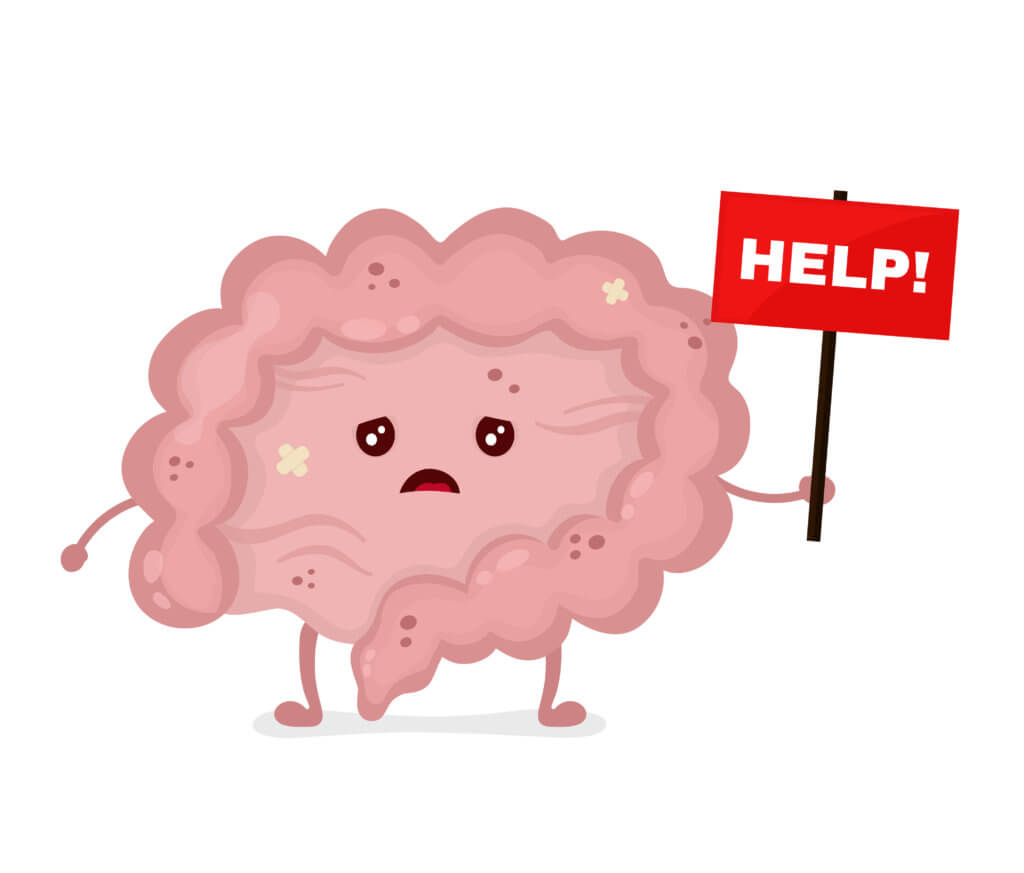Our gut is home to trillions of of bacteria. Some are bad, but plenty are good. It’s important to strike an optimal balance of bacteria, ensuring that there is more healthy than unhealthy types inside of us.
Most people can tell that their gut isn’t that pleased when they experience things like diarrhea or constipation. While signs of gastrointestinal irritation are quite frequently a clear telltale sign of gut dysfunction, there are more subtle signs that are not as commonly associated with it.
Here are three interesting symptoms that may indicate poor gut health, and how to move forward. If you are experiencing any of these symptoms, contact your doctor before making any changes to your diet or lifestyle.
1. Regular Bloating
Food intolerances, sometimes confused with food allergies, lead to symptoms like bloating when the body can’t properly digest a food. Some people with food intolerances may even be able to tolerate a food that causes them distress in smaller quantities, without any problems.
Though there can be many reasons for bloating, it’s most commonly associated with a disruption to the gut microbiome. Most often, people who experience bloating regularly do so after eating foods like dairy, gluten, or soy. To address this, a dietitian may recommend an elimination diet for a few weeks or months to clearly identify the body’s trigger.
If symptoms go away, it may be recommended to slowly reintroduce the trigger and see if there is a reaction still. For many, the symptoms go away after a period without the problem foods, and they can proceed with eating the foods that once irritated them.
2. Heightened Sugar Cravings
It’s no secret that eating sugar once is likely to make you want it again pretty soon after. In fact, excessive sugar cravings may be partially caused by the types of microorganisms in your gut.
If you have an especially stubborn sweet tooth, the best way to deter sugar-obsessed gut microbes from taking over even more is to gradually decrease your intake of added sugars. It can be difficult to go cold turkey, and doing so may do more harm than good since you are more likely to break the pattern and binge on sugar after forcing yourself not to eat it at all.
To help, try replacing sugar-sweetened beverages with naturally flavored sparkling waters or water infused with berries or citrus. Instead of reaching for a bag of Sour Patch Kids, perhaps opt for acidic fruits like pineapples or grapes. If you typically add sugar to oatmeal, tea, or coffee, instead try adding cinnamon or honey as a whole food source of sweetener.
It’s also recommended to thoroughly read nutrition ingredients on labels. Added sugars are often hidden in foods you may not have thought of, like tomato sauce and bread. Over time, these small changes can make huge differences.
3. Skin Irritation and Acne
There could be so many possible reasons for irritated skin, and so it makes a cause difficult to pinpoint. Environmental toxins, hair products, makeup, etc., could all be possible causes outside of lifestyle choices.
Within the realm of food and lifestyle choices, fried foods and refined sugar are the main culprits that promote gut dysbiosis. Inflammation in the gut lining has been shown to translate to inflammatory skin conditions like hormonal acne, eczema, and psoriasis. It’s been highly studied that patients with inflammatory bowel disease (IBD) or irritable bowel syndrome (IBS) are at a greater risk of suffering from conditions like these.
Similar to bloating, someone with chronic skin conditions may benefit from an elimination diet to see if there is a component in their diet that’s worsening the problems. A dietitian may also recommend consuming more foods rich in omega-3 fatty acids like fish and nuts.
The Bottom Line
Each of these symptoms could also be due to a plethora of other possible health issues going on in the body that are unrelated to the gut. That said, if you find that you are experiencing any of these and you feel you’ve tried everything under the sun, maybe consider the gut. A gut specialist or dietitian can work with you to get to the root cause, and provide you with ample dietary and lifestyle guidance to support your gut health.












